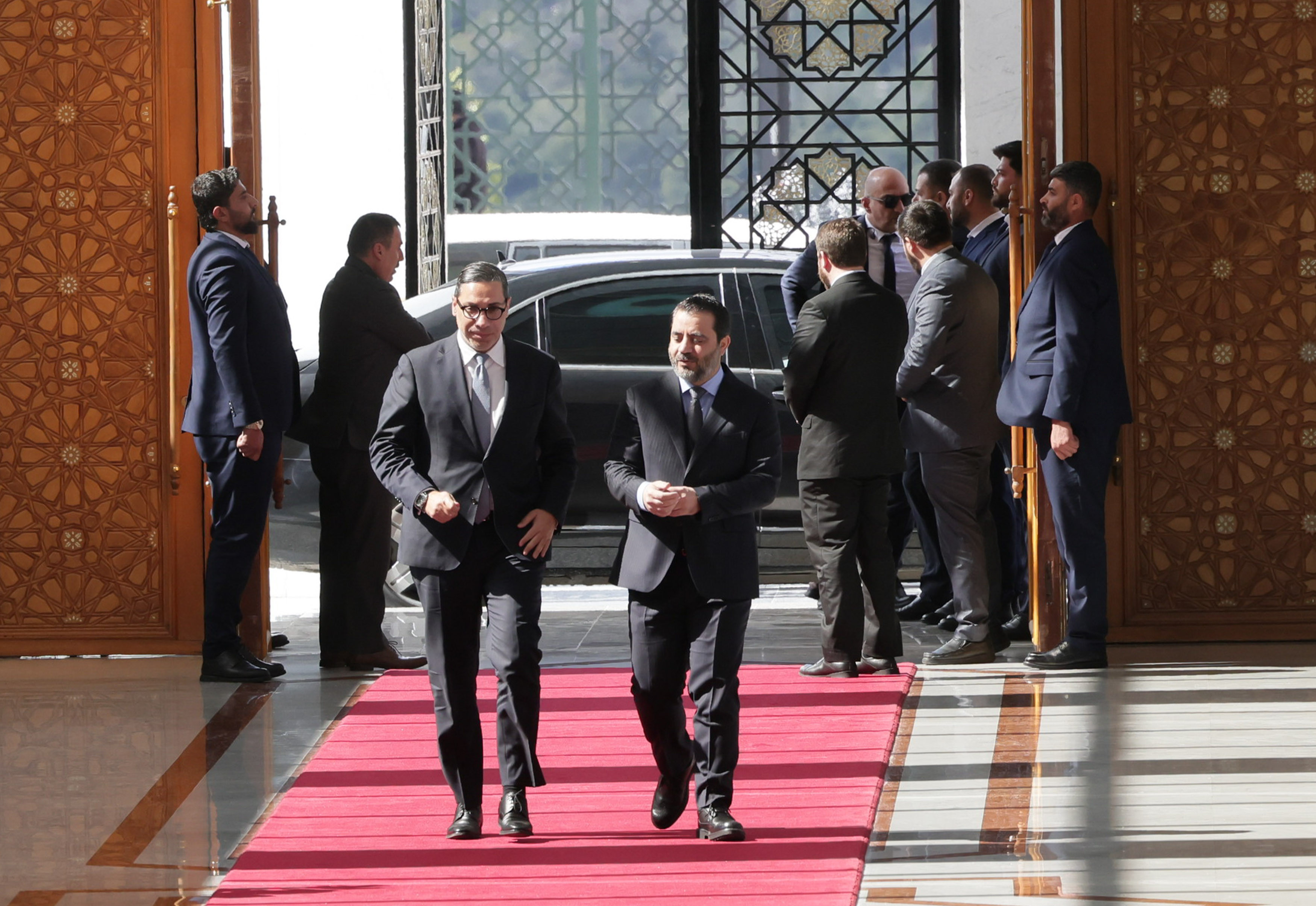Foreign Minister Constantinos Kombos on Thursday spoke of an “encouraging” first step towards normalising relations with Syria after meeting Syrian transitional President Ahmed al-Sharaa and Foreign Minister Asaad al-Shaibani in Damascus.
“The purpose of this visit was to express the Republic of Cyprus’ will to assist with a positive agenda, in a positive perspective for Syria after the fall of the Assad regime, both at a bilateral level and within the European Union,” he said.
He added, “the relations are deep, historic, and our purpose is to see how we can assist in Syria’s transition back to the international community, as a full member, with the expected and required legitimacy.
“This, of course, presupposes that the basic principles of good neighbourliness, respect for territorial integrity, and the sovereignty of states exist.”
Kombos added that the results of his meetings “are positive, encouraging, but are a first step from which we will try to continue for the purpose that I mentioned”.
He went on to say that he had had “an extensive discussion” with the Syrian leaders, and that the discussion had touched on matters including investment and issues related to assistance within the EU, both at a technocratic and political level.
“Syria is a neighbouring country, and its security, stability, and progress are things which affect and concern the Republic of Cyprus, and therefore, we will do everything we can to help this effort, within the framework of reciprocity, common interests, and our common interest in the security and stability of the region,” he said.
Later, the Cyprus News Agency reported that Kombos and al-Sharaa also discussed possible investments in Syria, as well as the prospects for a future visit to the country by a delegation of Cypriot entrepreneurs.
The two men discussed Syria’s need to rebuild infrastructures, such as roads.
The visit came as Syria begins to stabilise after the overthrow of its former leader Bashar al-Assad in December, with al-Sharaa beginning to establish order in the country with the aid of his allies.
He has in recent weeks worked to build those ties internationally, having made his first international visit as interim president to Saudi Arabia at the beginning of the month, and then following that up with a visit to Turkey, which neighbours Syria to the north.
In Turkey, he met President Recep Tayyip Erdogan and said Turkey’s “honourable and positive support for the just cause of the Syrian people serves as a strong example of the brotherhood between the two countries”.
“I extend my deepest thanks and appreciation to [Erdogan] for the hospitality and generous welcome he showed during our visit to friendly Turkey,” he added, while also expressing a desire for stronger ties in the fields of politics, the economy, and security with the country.
Meanwhile, Erdogan described al-Sharaa’s visit as a “historic” step towards the beginning of “a period of lasting friendship and cooperation” between the two countries.
“Being of historic importance, I see this visit today as the start of a new era of eternal friendship and cooperation. All of our institutions have been working tirelessly to rebuild our relationship to a strategic level,” he added.
He also called for international sanctions levied against Syria while the country was ruled by Assad to be lifted, and said his government “will pursue lifting these sanctions until the job is complete”.
Strong ties between the new Syrian government and Turkey had earlier fuelled fears in Greek and Greek Cypriot circles that the two countries may delineate their exclusive economic zones (EEZ) without consulting Cyprus and thus encroach on the Republic of Cyprus’ claim.
The fears arose after Turkish Transport Minister Abdulkadir Uraloglu made reference to such plans in mid-December, though he walked his statements back on Christmas Eve, saying any such agreement would “take into account international law”.
The matter of the EEZ was not mentioned publicly at al-Sharaa and Erdogan’s meeting in Ankara.
Al-Sharaa (alias Abu Muhammad al-Jolani) is the leader of the armed group Hay’at Tahrir al-Sham (HTS), designated as a terrorist organisation by the UN Security Council.
HTS is also a proscribed terrorist group in the United States. According to the Office of the Director of National Intelligence, “Hay’at Tahrir al-Sham (HTS) is a coalition of northern Syria-based Sunni Islamist insurgent groups that evolved from Jabhat al-Nusrah, or ‘Nusrah Front,’ al-Qa’ida’s former branch in Syria.”
Al-Qaeda itself is a proscribed terrorist organisation in the European Union.
However, HTS has officially denied being part of al-Qaeda and said in a statement that the group is “an independent entity and not an extension of previous organisations or factions.”







Click here to change your cookie preferences